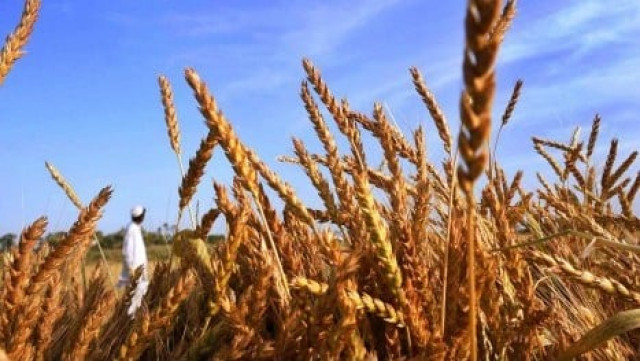Vessels carrying wheat, sugar arrive
Imports of commodities will help overcome shortfall, control prices

With the arrival of the latest vessels carrying wheat and sugar on Friday, the government has imported a total of 75,000 tons of sugar and 220,000 tons of wheat intending to overcome the estimated shortfall in local demand and control their prices in retail.
“Sugar will be delivered to the government of Punjab, which will sell it at a much cheaper rate than the market,” the state-owned commodity trading firm Trading Corporation Pakistan (TCP) Chairman Dr Riaz Memon said in a brief press statement.
An official source said the sweetener cost Rs72 per kg at Karachi Port Trust (KPT). TCP would deliver 50,000 tons of sugar to the government of Punjab and remaining 25,000 tons to Utility Stores Corporation (USC).
“The federal and provincial governments are most likely to give subsidy on sugar to keep the commodity cheaper (and control the inflation),” the source added.
The sweetener is being sold at Rs95-110 per kg in retail in different parts of the country, according to retailers.
“TCP would import another 750,000 tons of sugar during November to overcome shortfall and bring down prices in retail. After that locally manufactured sugar would arrive into the markets,” he said.
The next stock of sugar (75,000 tons) will be imported at a comparatively higher price than the one imported during October, as the price has started increasing in world markets. “The average price for the total (150,000 tons) imported sugar by TCP would be Rs74-75 per kg at KPT,” he added.
To recall, sugar was available at Rs54 per kg in retail when the PTI government came into power in the aftermath of July 2018 general elections. The government conducted a forensic audit of sugar mills to investigate the causes of significant surge in the commodity price to over Rs80 per kg in May 2020. The price, however, continued uptrend and reached up to Rs110 per kg. In its latest move, the government has blamed the bureaucracy for the continuous increase in inflation in the country, as they are not implementing orders.
Wheat import
TCP, on behalf of the government, has imported 218,375 tons of wheat through receipt of a total of four ships during October.
Earlier, the state-owned storage firm Pakistan Agricultural Storage and Services Corporation Ltd (Passco) and the private sector separately imported some vessals of wheat.
The country imported a total of 431,594 tons during July-September 2020, according to the Pakistan Bureau of Statistics (PBS). The average landed cost of the grain was recorded at $235.96 per ton, translating into Rs38 per kg (considering dollar at Rs165). The imported price is costlier by Rs3 per kg compared to the one determined by the government for locally produced grain at Rs35 per kg for the past season.
The Economic Coordination Committee (ECC) of the cabinet has suggested a new price of Rs40 per kg for the new stock to be harvested during March-June 2021.
Another source said the price of wheat has also started increasing in the international markets since Pakistan announced to import a significant amount of the grain totalling at three million for this season.
He elaborated 1.5 million tons would be imported by TCP and another 1.5 million tons by the private sector. The official source added that TCP has so far imported close to 220,000 tons. Almost 75% of this is imported for the government of Khyber-Pakhtunkhwa (K-P) and 25% for the government of Punjab. The distribution is being made as per directives of the ministry of foods.
Elaborating on plans, he said, TCP would import another 460,000 tons in November, 426,000 tons in December and another 350,000 tons in January 2021. “The imports would be enough to overcome the shortfall and bring down the wheat-flour price in the country,” he said.
The widely used flour (No2.5) is available at around Rs62 per kg in retail in Karachi these days. It was available at around Rs40 when the PTI government came into being.
Sindh Abadgar Board (SAB) Vice President Syed Mahmood Nawaz Shah earlier said, “If the provincial (Sindh) government had released the required quantity of wheat to flour mills in August-September instead of in late October then the flour price may have remained lower than its current price.” The sugar price may drop over the next one to two months after millers started manufacturing the sweetener for the new season. However, the wheat-flour price may remain high till next harvesting season for the grain beginning in March 2021, he estimated. “The little imports of wheat and sugar may alone not help the country to bring down the commodities prices which shot to skies this year,” he said.
Published in The Express Tribune, November 1st, 2020.
Like Business on Facebook, follow @TribuneBiz on Twitter to stay informed and join in the conversation.



















COMMENTS
Comments are moderated and generally will be posted if they are on-topic and not abusive.
For more information, please see our Comments FAQ